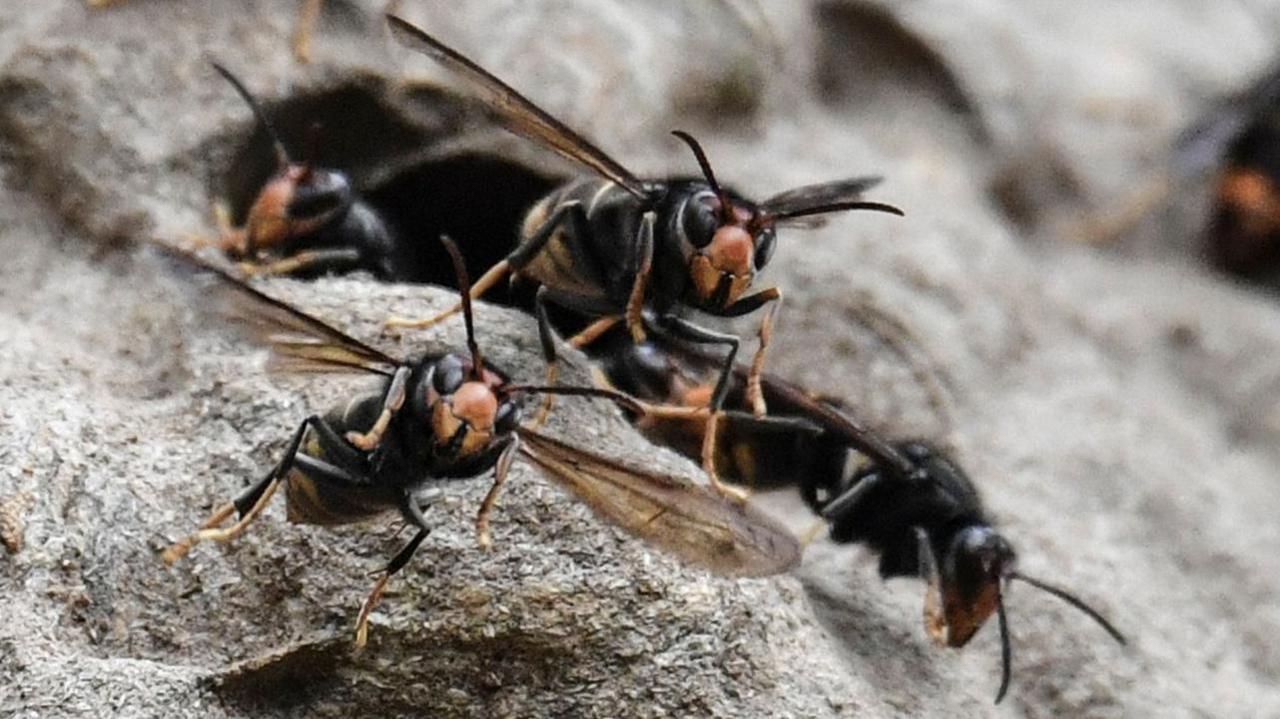Inside the lab fighting an Asian hornet invasion
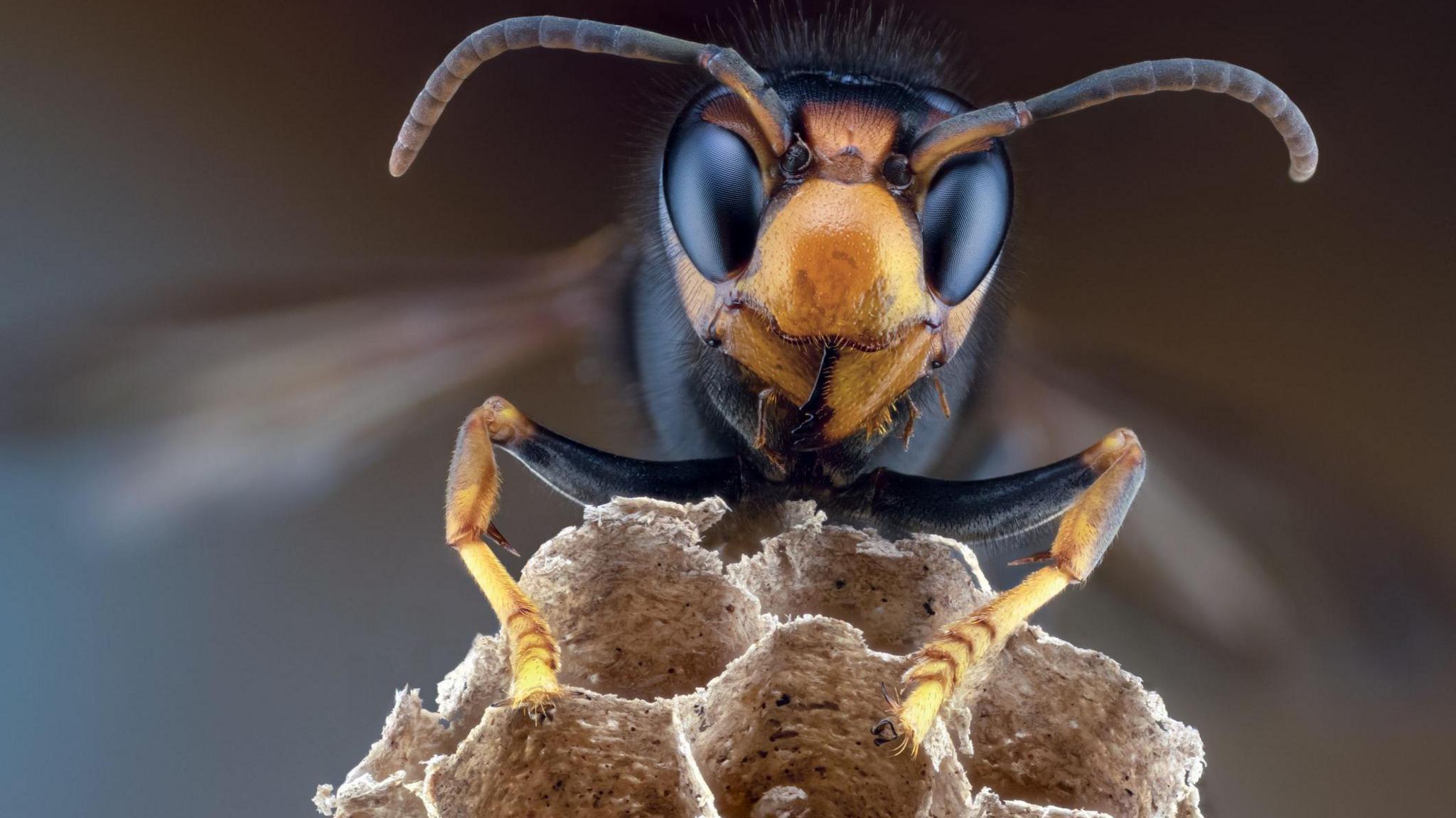
Asian hornets are a threat to the UK's insect population
- Published
The BBC has been given exclusive access to a laboratory fighting to eradicate Asian hornets in the UK.
Scientists at Fera Science near York analyse the DNA of hornets found in nests to help target hotspots where they might emerge next year.
Dr Eleanor Jones, a senior molecular geneticist at Fera Science, says the UK is currently in a phase where it can "realistically" eradicate the Asian hornet.
So far this year, bee inspectors have destroyed 23 nests, most of which were in Kent and Sussex, compared to 72 in 2023.
Asian hornets are a threat to bees and other pollinators.
One nest of hornets can eat up to 24lb (11kg) of insects in a single season and one hornet can eat as many as 50 bees in a day.
At the start of a nest's life cycle, a queen hornet produces female workers.
Later on, she produces the next generation of males and finally the next generation of queens.
“What we’re looking for are males” says Dr Jones.
She explains that the presence of male hornets in a nest indicates whether the nest may have produced queens.
If there are no male hornets, the nest is likely to have been destroyed in time, before new queens have dispersed.
Asian hornet larvae, pupae and adults are taken from the nest for genetic analysis.
On the day we visit, scientists cut open a large, rugby ball-shaped nest - 20in (50cm) tall and 15in (40cm) wide - with a carving knife.
It was found and destroyed in Kent in October.
"This is probably the most impressive we've had all season," says lab manager Victoria Tomkies.
It has been kept in the freezer for 72 hours to ensure all the insects are dead.
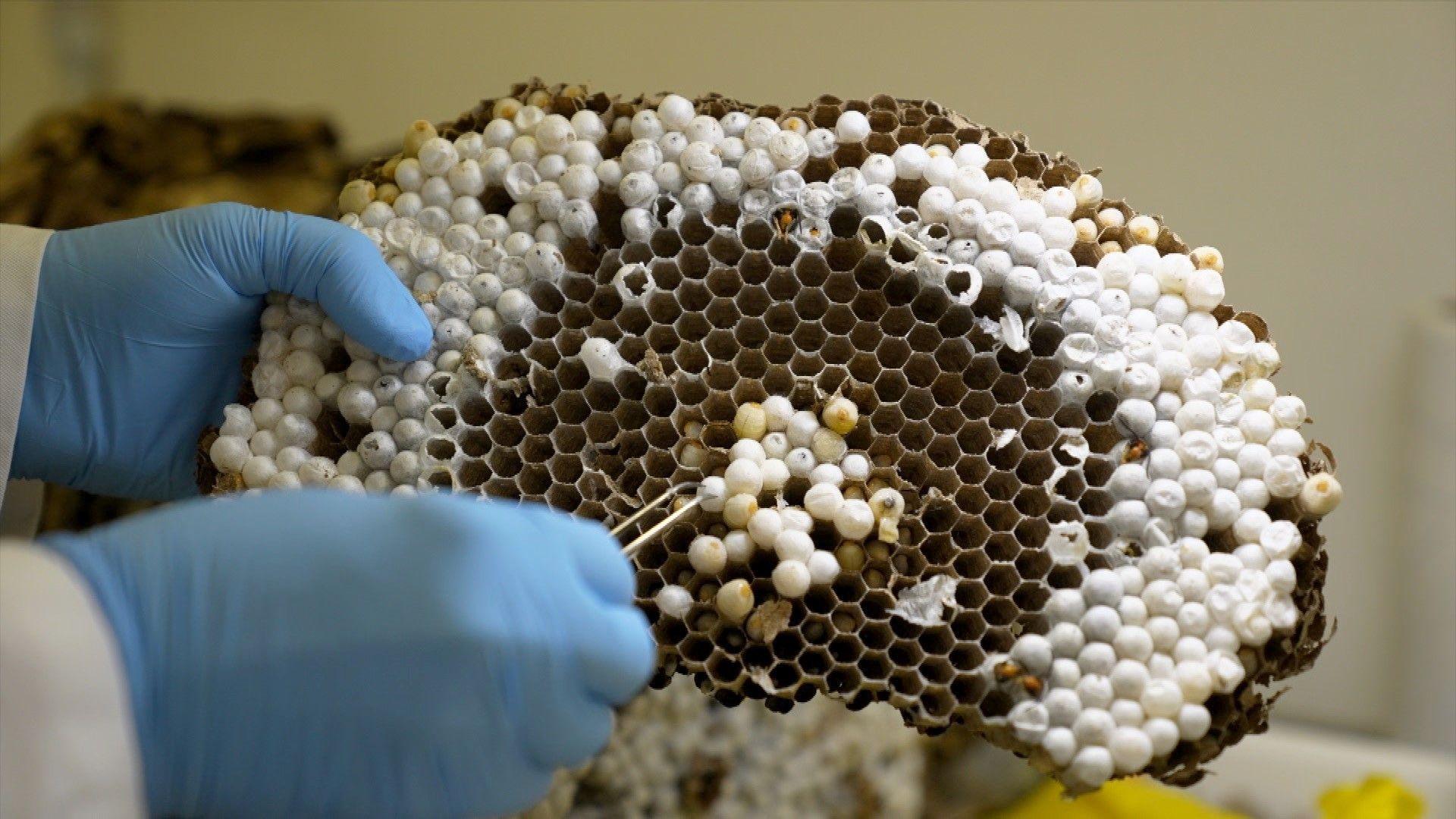
The scientists pluck out hornet larvae from the nest for DNA analysis
The Killer Hornets
- Attribution
With pointed tweezers, the scientists extract hornet larvae and pupae for analysis, along with all adult hornets.
"As part of genetic analysis, we want to extract samples from all life stages," Ms Tomkies says.
Under a microscope the scientists work out what sex a hornet is. Males go into one petri dish, females into another.
All the females are weighed - any bigger than 0.02 ounces (600mg) will be further analysed to see if they are queen hornets.
In this particular nest, it's bad news. There are males and recently laid eggs.
The dissection shows this was an active nest when it was destroyed, meaning new queens may have already been produced and dispersed.
As a result, in the spring there will be extra surveillance in the area where the nest was found, with trapping for emerging queens and additional bait stations.
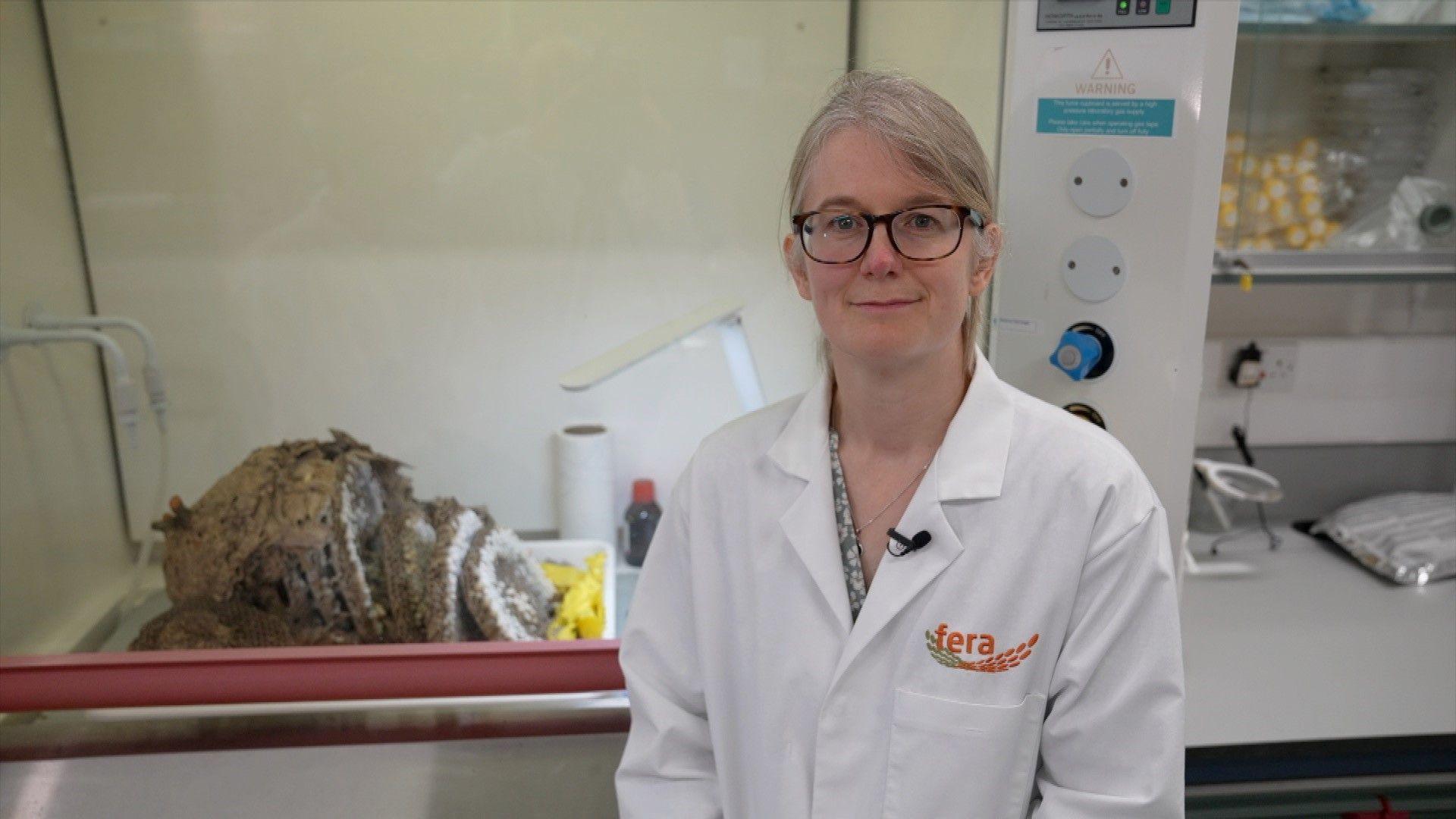
Dr Eleanor Jones says the UK is currently in a phase where it can "realistically" eradicate the Asian hornet.
Laboratory staff also look at the hornet’s genetic code to see if any are related to hornets discovered last year.
Dr Jones said: “We’re looking for that final link to show they’ve successfully bred.’’
DNA research shows that Asian hornet queens are surviving winters in the UK, but it is not yet possible to tell whether this second generation are successfully breeding.
Dr OIaf Booy, from the Animal and Plant Health Agency, says that in hotspot areas, bee inspectors would "make sure people have bait traps, make sure awareness in the area is as high as we possibly can make it and make sure people are reporting sighting of the hornet through the Asian Hornet Watch app, external.”
Follow BBC Kent on Facebook, external, on X, external, and on Instagram, external. Send your story ideas to southeasttoday@bbc.co.uk or WhatsApp us on 08081 002250.
Related topics
- Published18 October 2024

- Published20 May 2024
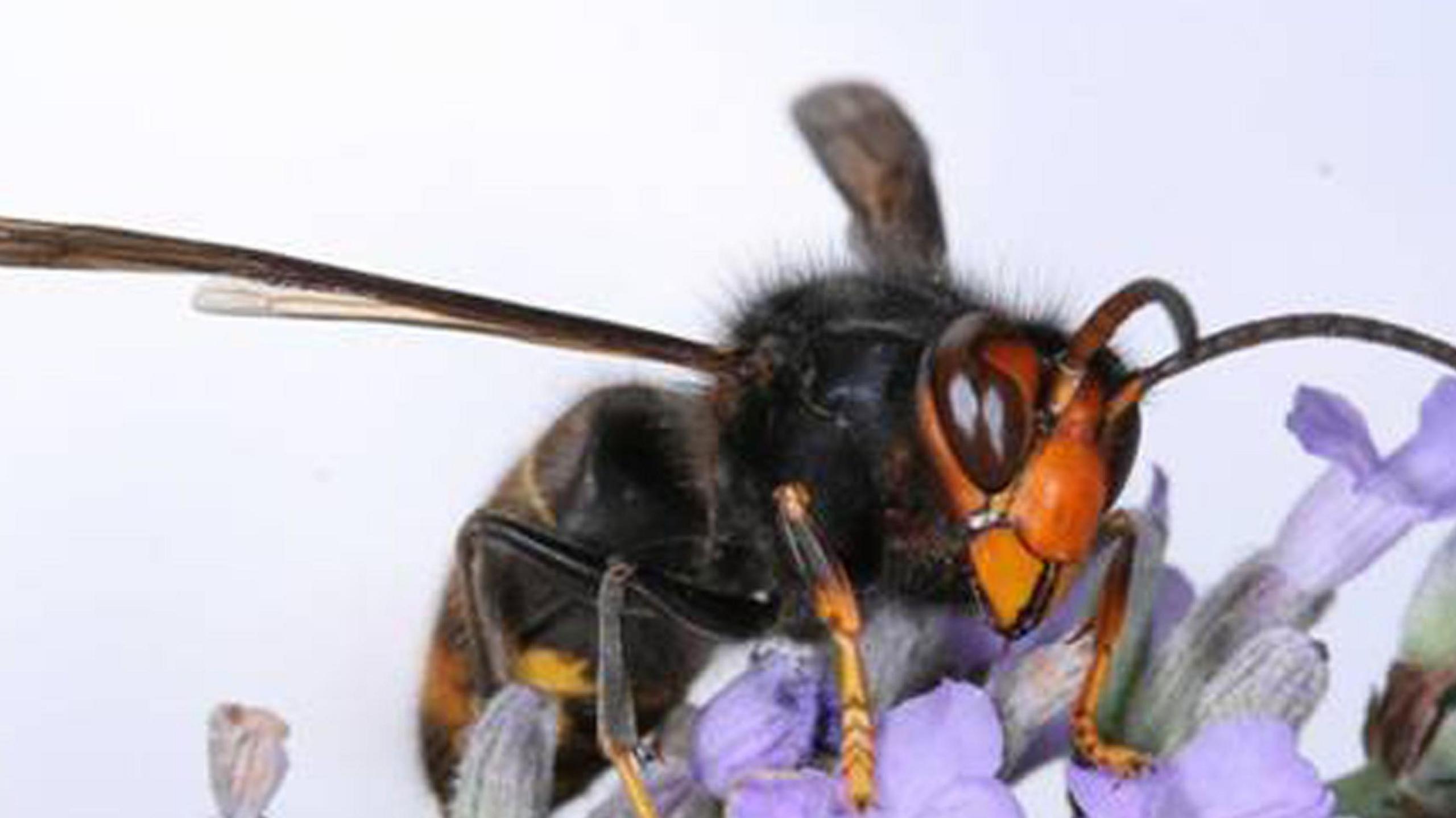
- Published6 September 2024
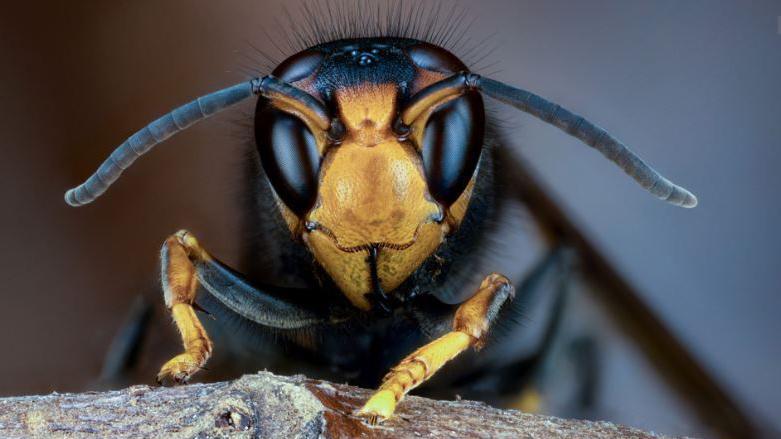
- Published1 October 2024
